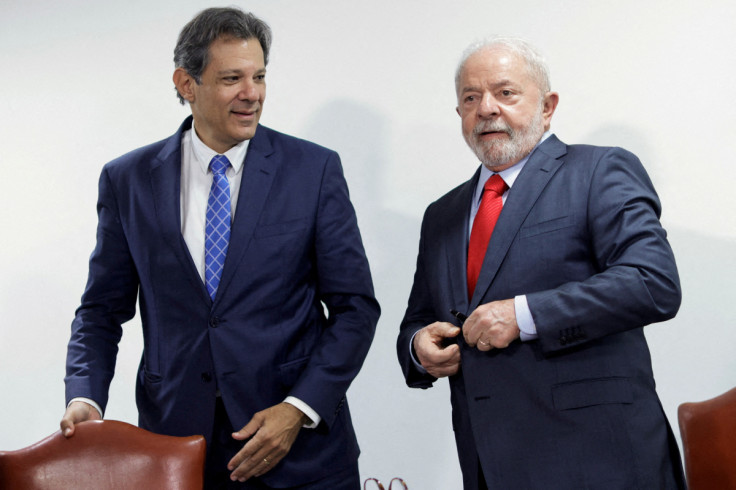Brazil Unveils New Budget Rules, Easing Market Fears On Fiscal Discipline

Brazil's finance ministry unveiled on Thursday a proposal for new fiscal rules to balance limits on spending growth with the government's vow to boost social programs and public investment, lifting local markets after months of uncertainty.
The long-awaited proposal is key to easing fiscal concerns after leftist President Luiz Inacio Lula da Silva secured congressional approval to bypass a constitutional spending cap. His spending vows and criticism of the central bank have pushed up inflation expectations since he took office in January.
The new fiscal framework proposed in the finance ministry presentation on Thursday combines a looser spending cap with primary budget targets, as reported by Reuters on Wednesday.
Brazil's benchmark stock index rose 1.5% and its currency firmed slightly against the U.S. dollar to a nearly two-month high as analysts greeted the proposal with measured relief, highlighting questions about its details and execution.
The new rules would allow public spending to grow between 0.6% and 2.5% per year above inflation. Spending growth would also be limited to 70% of revenue growth in the prior 12 months.
The new framework, which Finance Minister Fernando Haddad said will be submitted to Congress next week, would replace the constitutional ceiling that has prohibited any spending increases above inflation since 2017. Brazil has allowed repeated exceptions to that rule in recent years, undermining its credibility with economists and investors.
Haddad said the finance ministry had discussed the proposal with the central bank and other ministries, reaching "100% consensus" within the government after weeks of reported tensions between him and more leftist aides to the president.
In an olive branch to central bank President Roberto Campo Neto, Haddad told journalists at a news conference that Brazil would only grow by "harmonizing" fiscal and monetary policy.
Lula has criticized Campos Neto repeatedly for the central bank for keeping interest rates at a six-year high due to rising inflation expectations and doubts about fiscal policy.
In a separate news conference, Campos Neto told journalists he still had not seen the details of the new fiscal framework, but the early proposals he heard seemed "quite reasonable."
As Reuters reported on Wednesday, the new framework would also target zero primary deficit in 2024, followed by a primary surplus equal to 0.5% of GDP in 2025 and 1% of GDP in 2026. The primary budget target would have a margin of plus or minus 0.25 percentage points.
This year's primary deficit target, the first of the Lula administration, is 228.1 billion reais ($44 billion). However, the finance ministry recently estimated that the shortfall will be 107.6 billion reais, equal to 1.0% of GDP, helped by a jump in expected tax revenue.
© Copyright Thomson Reuters {{Year}}. All rights reserved.




















